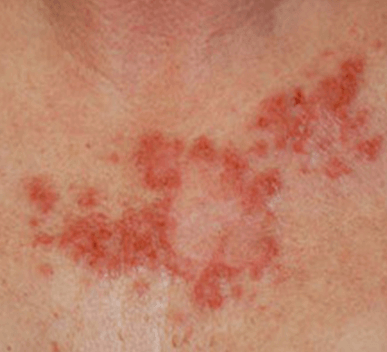Basal cell carcinoma (BCC) is a type of skin cancer that appears as abnormal growths or lesions on the deepest layer of the epidermis (the outer layer of your skin). The disease may appear as open sores, red patches, pink growths, or shiny bumps and scars. Basal cell skin cancers are reported to be the most commonly diagnosed type of cancer in the US. While they grow very slowly and rarely spread to other parts of the body, treatment is highly recommended as these skin cancers can be locally destructive.
Tues: 8:30am - 3:00pm
Wed: 12:00pm - 6:00pm
Thurs: 8:30am - 3:00pm
Fri: Closed
Sat: 8:30am - 12:30pm
Sun: Closed
Greenvale, NY 11548
Basal Cell Carcinoma


What is basal cell carcinoma?
What causes basal cell carcinoma?
Most basal cell skin cancers are caused by prolonged, unprotected skin exposure to ultraviolet (UV) rays, either from sunlight or artificial sources such as tanning beds. It may take years for signs of basal cell carcinoma to appear. Over time, UV rays may damage the DNA inside your skin cells. Your DNA may then begin producing abnormal, cancerous cells.
How dermatologists diagnose basal cell carcinoma
Your dermatologist will examine the affected areas of your skin and ask questions about your medical and family history as well as your symptoms and when they first began. During the exam, your dermatologist will check the size, shape, color, and texture of the affected areas. Your dermatologist may use a dermoscopy instrument for close inspection of your skin. This device uses a magnifying lens and light source to view the area more clearly. Dermoscopy aids in making an accurate diagnosis.
A biopsy will likely be necessary to confirm the diagnosis. A biopsy is an in-office procedure where your dermatologist will numb the skin around the affected area and remove a small skin sample for further microscopic evaluation.
How dermatologists treat basal cell carcinoma
Your dermatologist will plan a course of treatment based on the stage of the basal cell carcinoma as well as your personal medical history.
While normally used for precancerous lesions, cryotherapy (freezing the cancer cells with liquid nitrogen) is an option for treating some thin BCCs.
Topical chemotherapy involves the application of anti-cancer medications applied directly on the affected skin and is another option in some circumstances for early BCCs.
Early or superficial BCCs can often be treated with curettage and electrodesiccation. Commonly referred to as “ED&C,” this procedure involves scraping away the cancer with a sharp instrument called a curette, then treating the area with heat from an electrode instrument to destroy any remaining cancer cells.
A surgical procedure called an excision is a common treatment for more advanced basal cell skin cancers. This is an in-office procedure done with local anesthesia in which the diseased tissue is cut out and the surrounding skin is stitched together.
Mohs surgery may be recommended depending on the particular features of the BCC, such as the size and location of the lesion. Mohs surgery is a specialized procedure designed to remove as minimal of the normal surrounding skin as possible while providing the highest cure rate for the carcinoma.
Large tumors that cannot be safely removed with surgery may be treated with radiation therapy. This is a painless procedure similar to getting an x-ray, only the radiation is stronger and focused directly on the cancerous area. Radiation therapy side effects may include hair loss, skin irritation or changes in skin tone.
Rarely, systemic chemotherapy and oral medications may be used to treat lesions that are not amenable to excision or radiation therapy.
Each of these treatment options may produce different side effects that your dermatologist will discuss with you.
Basal cell carcinomas are curable if caught early. If you have a lesion that is concerning for basal cell carcinoma, you are encouraged to schedule an appointment with your dermatologist for evaluation.
If you are concerned about basal cell carcinoma, click here to schedule an appointment with our board-certified dermatologists or walk into Walk-in Dermatology at your convenience for immediate evaluation.






